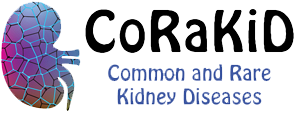The Artificial Kidney Initiation in Kidney Injury 2 (AKIKI2): study protocol for a randomized controlled trial
Résumé
Background: The Artificial Kidney Initiation in Kidney Injury (AKIKI) trial showed that a delayed renal replacement therapy (RRT) strategy for severe acute kidney injury (AKI) in critically ill patients was safe and associated with major reduction in RRT initiation compared with an early strategy. The five criteria which mandated RRT initiation in the delayed arm were: severe hyperkalemia, severe acidosis, acute pulmonary edema due to fluid overload resulting in severe hypoxemia, serum urea concentration > 40 mmol/l and oliguria/anuria > 72 h. However, duration of anuria/oliguria and level of blood urea are still criteria open to debate. The objective of the study is to compare the delayed strategy used in AKIKI (now termed “standard”) with another in which RRT is further delayed for a longer period (termed “delayed strategy”).
Methods/design: This is a prospective, multicenter, open-label, two-arm randomized trial. The study is composed of two stages (observational and randomization stages). At any time, the occurrence of a potentially severe condition (severe hyperkalemia, severe metabolic or mixed acidosis, acute pulmonary edema due to fluid overload resulting in severe hypoxemia) suggests immediate RRT initiation.
Patients receiving (or who have received) intravenously administered catecholamines and/or invasive mechanical ventilation and presenting with AKI stage 3 of the KDIGO classification and with no potentially severe condition are included in the observational stage. Patients presenting a serum urea concentration > 40 mmol/l and/or an oliguria/anuria for more than 72 h are randomly allocated to a standard (RRT is initiated within 12 h) or a delayed RRT strategy (RRT is initiated only if an above-mentioned potentially severe condition occurs or if the serum urea concentration reaches 50 mmol/l).
The primary outcome will be the number of RRT-free days at day 28.
One interim analysis is planned. It is expected to include 810 patients in the observational stage and to randomize 270 subjects.
Discussion: The AKIKI2 study should improve the knowledge of RRT initiation criteria in critically ill patients. The potential reduction in RRT use allowed by a delayed RRT strategy might be associated with less invasive care and decreased costs. Enrollment is ongoing. Inclusions are expected to be completed by November 2019.
Origine : Fichiers éditeurs autorisés sur une archive ouverte
licence : CC BY - Paternité
licence : CC BY - Paternité


